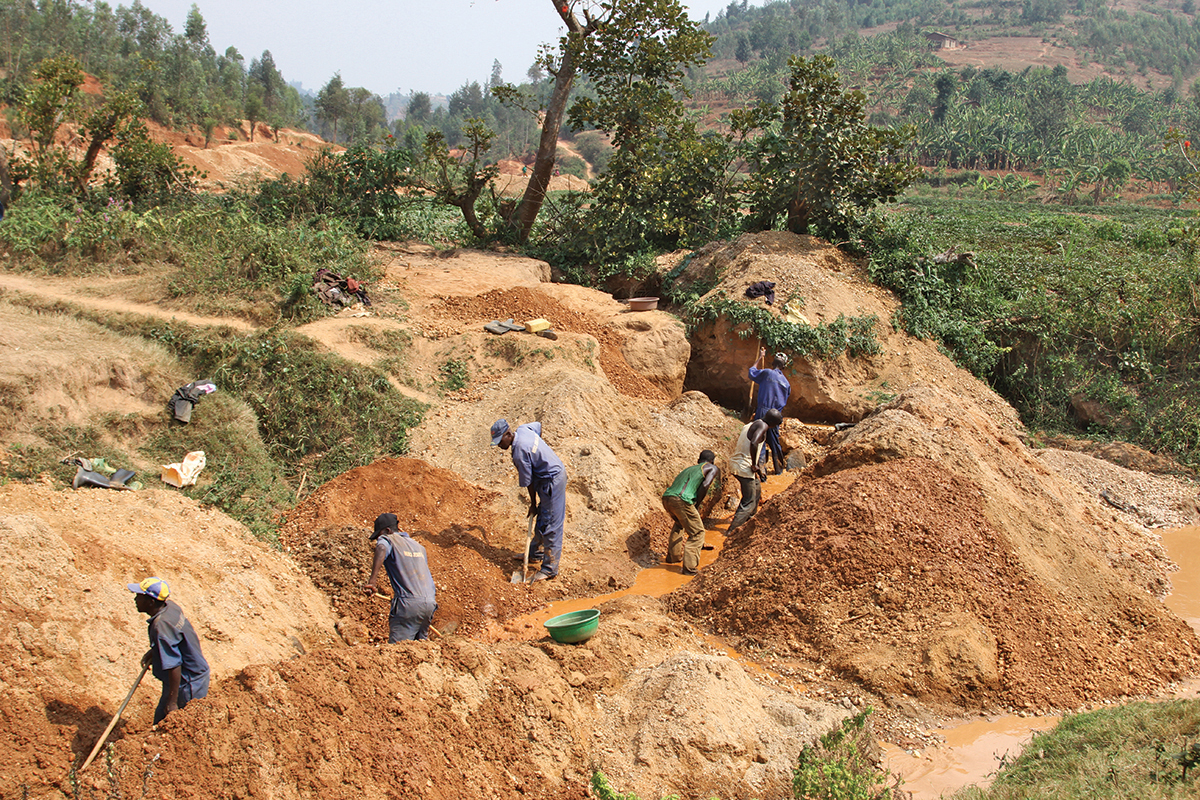Spontaneously combusting smartphones may be in the news, but the danger not being reported is the one caused by the minerals inside these devices. Conflict minerals have fostered violence where they’re mined in central Africa, and the U.S. response has made the situation worse.
In the Democratic Republic of the Congo, where the average resident lives on about $400 a year, mining is the most lucrative game around. The value of the Congo’s mineral reserves is estimated at $24 trillion, according to the United Nations Environmental Program, most of them dug by informal miners working with picks and shovels. But in a nation that has been crushed by civil war on and off for two decades, much of the mining sector is now controlled by militias that have committed murder, rape and other atrocities against civilians.
When Congress passed the Dodd-Frank financial bill in 2010, it included a provision aimed at curbing the violence caused by these minerals. Companies like Apple and Intel use the metals to make electronic components in devices such as cellphones and laptops. Legislators hoped that by requiring U.S. companies to disclose purchases of tantalum, tin, tungsten and gold, the militias’ funding would dry up.
Dodd-Frank upset the stationary-bandit equilibrium because, rather than spending resources to scrutinize a fragmented and opaque supply chain, many U.S. companies simply stopped purchasing minerals from the Congo. The Commerce Department admitted in a 2014 analysis that it did “not have the ability to distinguish” whether specific mineral purchases funded militias, and in August a Government Accountability Office report found that 97% of companies that filed disclosures “couldn’t determine whether the conflict minerals financed or benefited armed groups.”
Companies avoided the extra costs and red tape by boycotting tantalum, tin and tungsten mined in the Congo. They instead looked to suppliers in Australia and Brazil. Congolese mineral exports plunged by 90% in the wake of the legislation, according to DRC mining officials. Consequently, income to militias from such mines either plunged or vanished entirely.
None of this stopped the militias from killing. Some of them pivoted and became “roving bandits,” expanding their looting to make up for lost mining revenues. Mancur Olson, the late Nobel laureate in economics who outlined the theory of both types of bandits, wrote in a 1993 American Political Science Review article that the anarchy and theft wrought by the roving sort destroy “the incentive to invest and produce, leaving little for either the population or the bandits.” Messrs. Parker and Vadheim found that armed groups specifically targeted farmers during harvest time—especially after bumper crops.
U.S. policies often affect people halfway around the world, in this case harming Congolese who are suffering at the hands of roving bandits. If U.S. legislators are going to write provisions into laws that attempt to help these people, they must be sure that the laws don’t make civilian life in the Congo more difficult than it already is.
This article orignally appeared in The Wall Street Journal on November 13, 2016.




